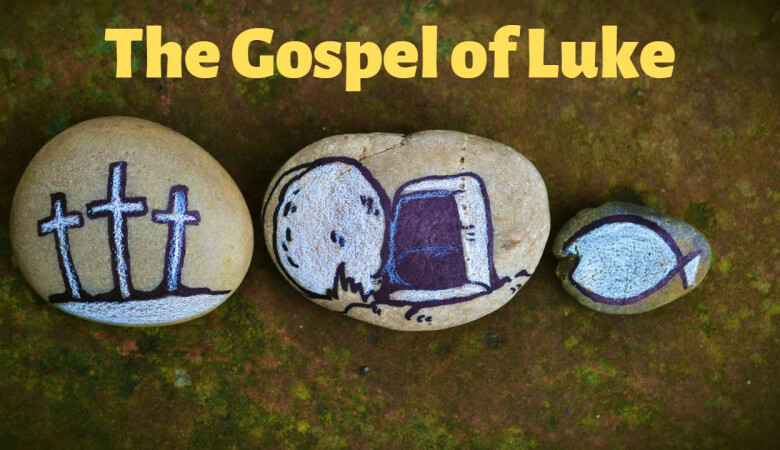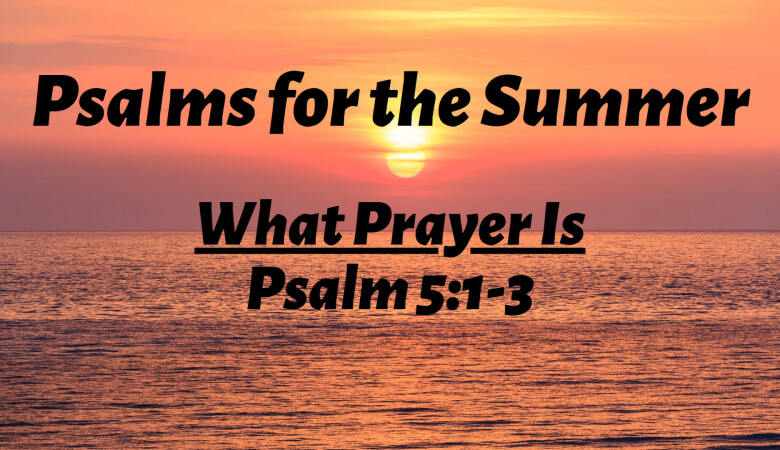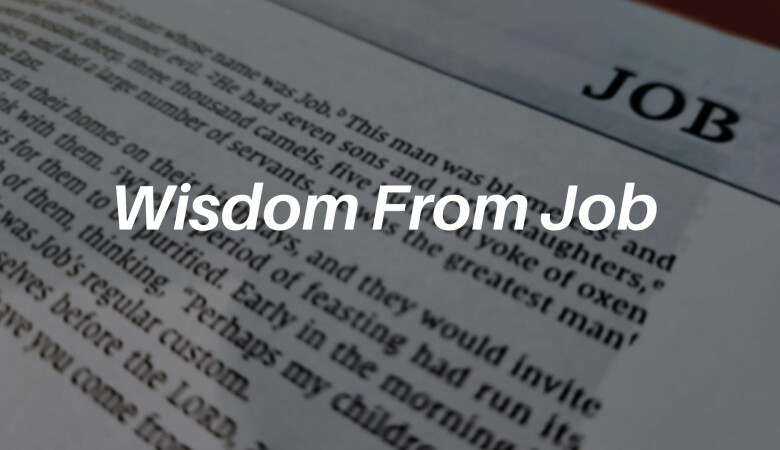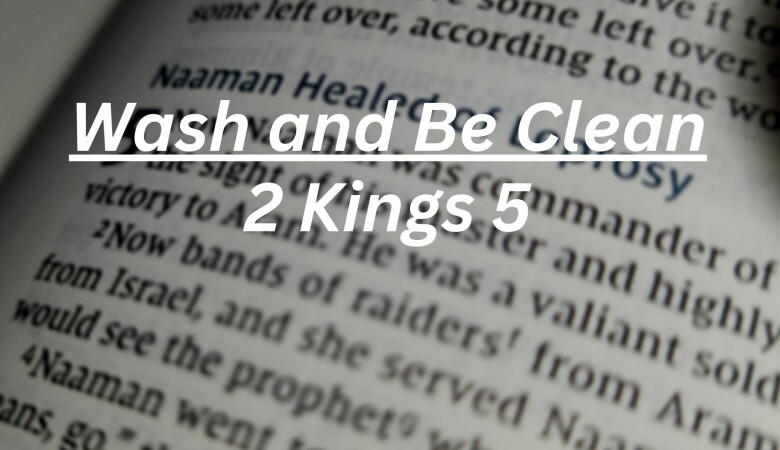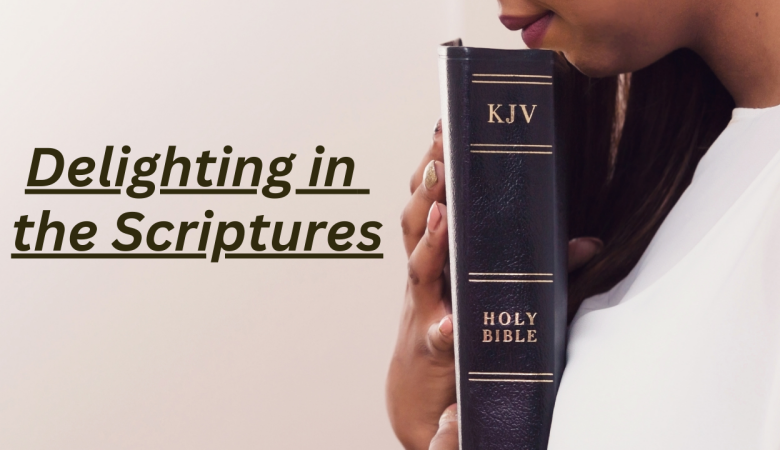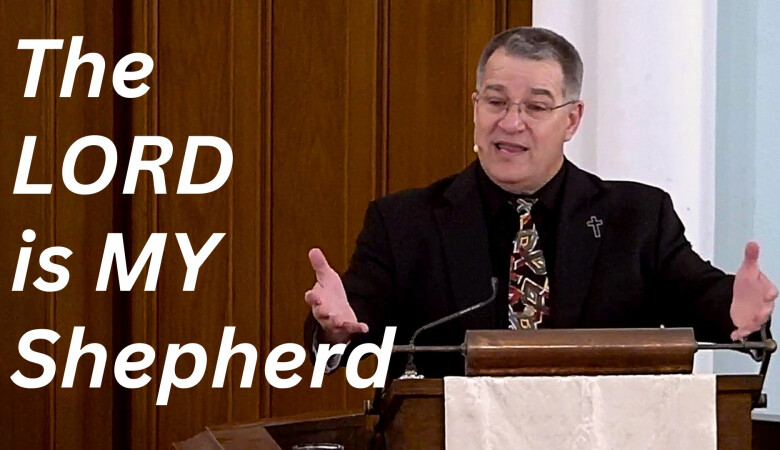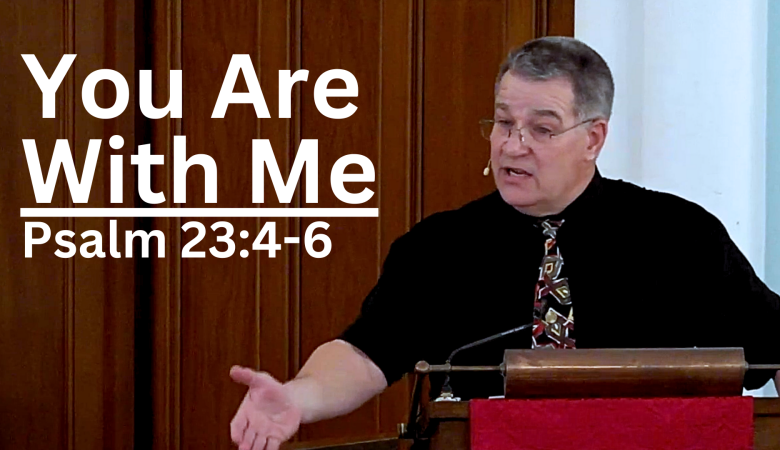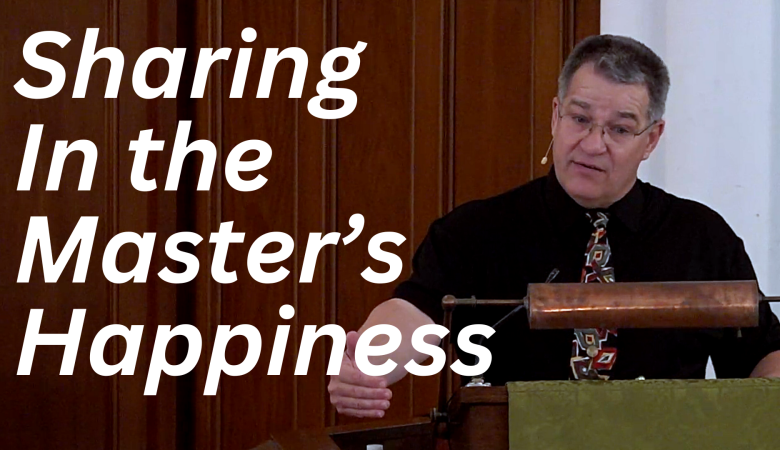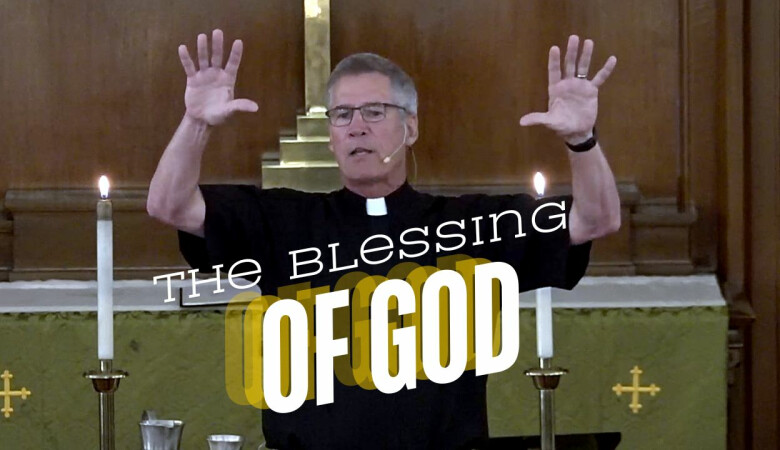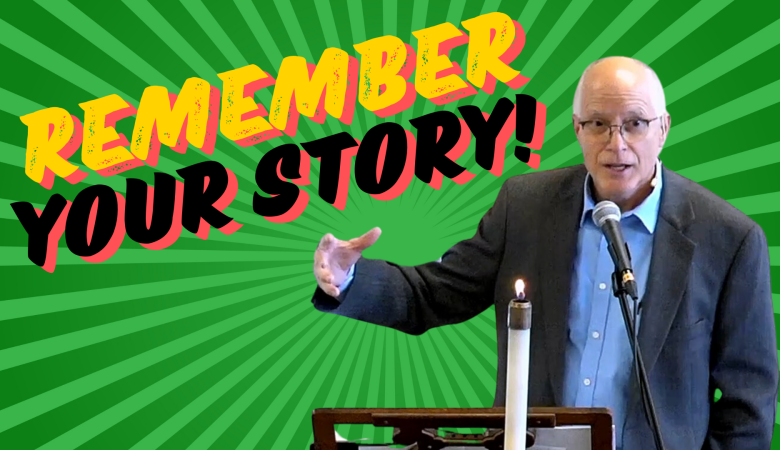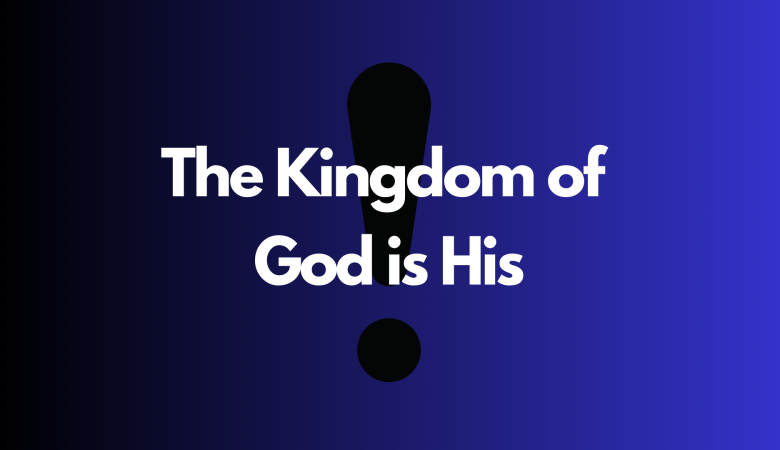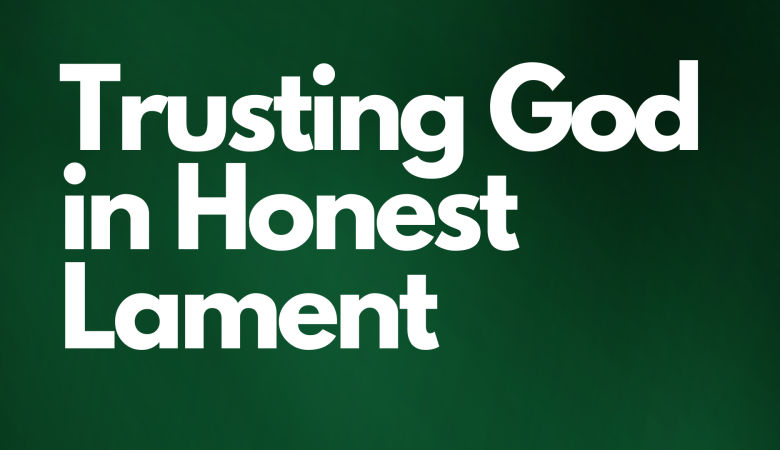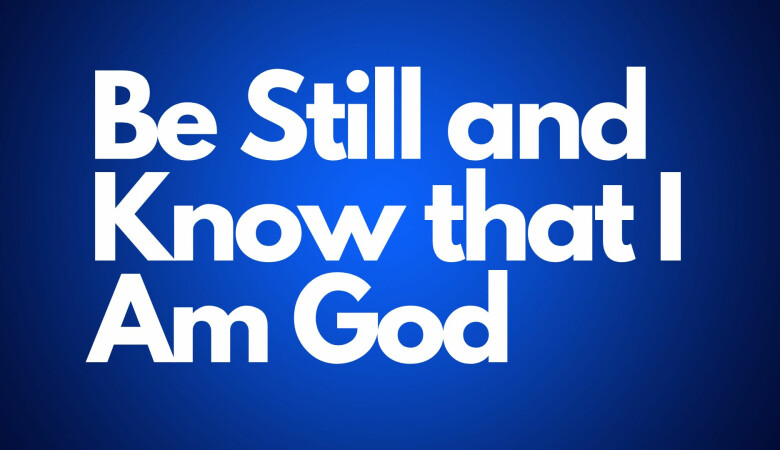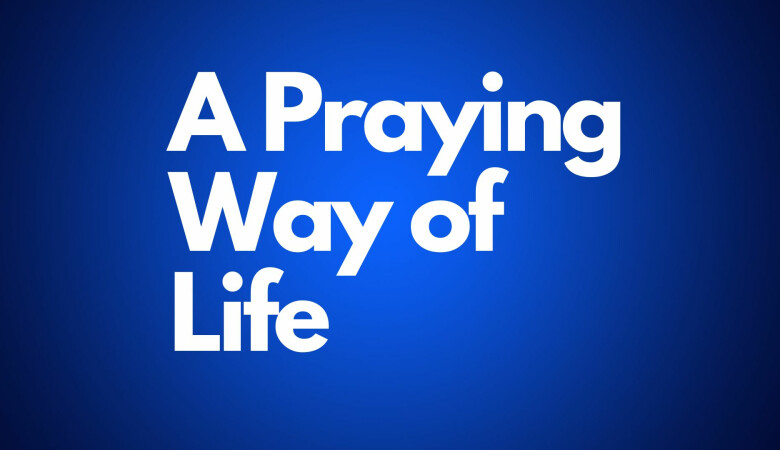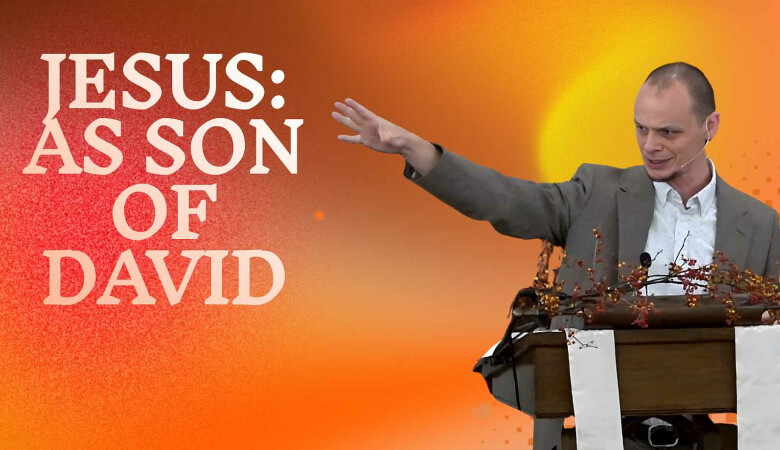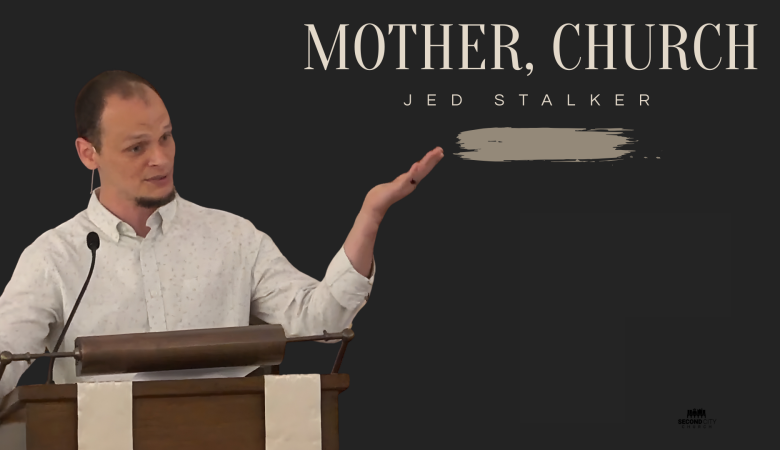Series: Guest Preachers
A Promise for the Righteous
October 27, 2024 | Kevin Sheahan
Passage: Psalms 1:1-2:12
Summary
Psalms 1 and 2 are a guide to understanding all of the Psalms. Grasp these two Psalms and the rest are unlocked.
Psalm 1 describes the "blessed" person, who avoids wickedness and delights in God's law, resulting in a fruitful and prosperous life, symbolized by a tree planted by water. In contrast, the wicked are depicted as chaff, lacking stability and destined for destruction.
Psalm 2 shifts to a prophetic view, depicting the nations rebelling against God, who remains sovereign and has appointed His Son as King. This psalm emphasizes that those who take refuge in the Lord will be blessed, while the wicked face judgment.
Together, these psalms present a guide to spiritual fulfillment and the importance of faith in God’s sovereignty, highlighting that true righteousness comes through faith in Jesus Christ, the ultimate fulfillment of these teachings.
Transcript
Psalms 1 and 2. Reading both of them this morning, the two of them together are really the key to understanding the entire Psalter in many ways. It's like when Jesus said of the parable of the soils, if you don't understand this parable, you won't understand any of the parables. In the same way, I think Psalms 1 and 2, you need to understand, otherwise you won't understand the rest of the Psalms. They go together not necessarily as one psalm, but there are certainly two sides to the big picture that the whole book of Psalms is trying to paint for us. If I could sum up the book of Psalms briefly, would be this. The Psalms are a guidebook to blessing. They're a guidebook to blessing. We learn to move from lament to praise through all the seasons of life. The Psalms cover every imaginable emotional experience we can have and teaches us how to work through them in such a way that at the end of it, we say, praise the Lord. There's movement throughout the course of the book, but it begins with Psalms 1 and 2, who set the stage for us and give us a lens through which we can better see the entirety of the Psalter. Let me read Psalm 1 again. I know we just read it recently, um, but let me read Psalm 1 again. That's primarily what we're focusing on. Just a little bit of Psalm 2 at the end. Psalm 1. Blessed is the man who walks not in the counsel of the wicked, nor stands in the way of sinners, nor sits in the seat of scoffers. But his delight is in the law of the Lord, and on his law he meditates day and night. He is like a tree planted by streams of water that yields its fruit in its season, and its leaf does not wither, and all that he does, he prospers. The wicked are not so, but are like chaff that the wind drives away. Therefore the wicked will not stand in the judgment, nor sinners in the congregation of the righteous. For the Lord knows the way of the righteous, but the way of the wicked will perish. Let's pray. O Lord our God, as we open up your holy word. Now may we hear from you. May you speak to us through your spirit, that it may profit us that we may grow and learn and be conformed more into your image. O Lord, we ask that these are not just be idle words or interesting bits of information, but these would be words of transformation. Help us, O Lord, to understand what you would say to us. Open our ears, open our minds. We ask this through Christ our Lord. Amen. Just a little bit of background information on the Psalms. Before we get into Psalm M1 directly, you may know that the book of Psalms is actually divided into five books. You probably see it right there in your Bible. It starts off book one, Psalms 1, 41. Book one, 42 through 72 is book two, and so on. The fact that the Psalms are divided into five books should give us but to pause and reflect on. Wait a minute, where else do we know somewhere in Scripture that's divided into five books? The Torah, the Pentateuch, the first five books of the Bible called the Law of Moses. And some referred to the Psalms as the Law or the Torah of David, the primary author. Just a clue right off the bat that the Psalms are meant for instruction. This is not just a bunch of sort of feel good poems. Cool. Uh, things to sign off on the bottom of your email. This is meant to instruct us now. Book one, Psalms 1 through 41. If you'll see, if you look at Psalm 3 and 4 and 5 and 6, there's always that little superscription at the top of each psalm that's actually part of Scripture. That's not just something we put in later. It says a Psalm of David, Psalm 4, a Psalm of David, Psalm 5, a Psalm of David, psalm 6, a Psalm of David. Every Psalm of Book 1 is a Psalm of David, with the exception of Psalms 1 and 2. Again, these Psalms are meant to be set apart as an introduction to the rest of the book of Psalms, to all the Psalms. The very structure of Psalms 1 and 2 makes more sense if you read them together. The very first verse, Blessed is the one, blessed is the man. The very last verse of Psalm 2, Blessed are all who take refuge in him. Whenever you see repeated words in Scripture, you want to pay attention, especially when they're kind of bookending a section of text. When it begins and ends with this word blessed. Uh, pay attention. Everything in between is important, that it goes together, it works together. You also see that the last verse of Psalm 1 and the last verse of Psalm 2 have repeated words as well. They both contain the words weigh and perish. Now that may sound like, okay, not very interesting, but again, when Scripture repeats words, you pay attention. And especially when he puts it in a prominent place, these Psalms are meant to be read together. In a sense, they're two sides of the same coin, giving us a picture of what to expect as we go throughout the Psalms.
So let's look at Psalm 1 in more detail. Now, for those of you who like structure and like to know where we're going. We'll break this into three parts. Psalm 1 begins with a description of the blessed, and then the future of the blessed, and then the contrast of the blessed with the wicked. So a description of the blessed. Verse one, Blessed is the man. And yes, the word. There is a masculine word, but don't worry, it's just representative of anyone. All people. Blessed is the one blessed. The Hebrew word blessed is the word asir. Uh, it's common in wisdom literature. Think of the Book of Proverbs. You hear this word a lot. Blessed is the one who acts in some wise way and avoids folly. In fact, we just read it in the Beatitudes. It's sort of a, ah, section that Jesus uses where he dips into the wisdom literature. Blessed is blessed are the poor, blessed art, so on, so forth, so on, so forth. This is common with wisdom literature. Again, the Book of Psalms is instructing us. Now, the word blessed or blessed, we like to put kind of a spiritual, religious sort of exclamation point on it. Doesn't necessarily mean anything super spiritual. Um, Old Testament scholar Mark Futato just translates it happy. That doesn't sound very spiritual. It's kind of generically happy. Another translator says fortunate. So I know we love to kind of put like, let's make some sort of, like, sacred, you know, twist to this thing so we can do hashtag blessed, and make it sound super spiritual. But it's really, I think just think of it as just happy, fortunate, kind of generically blessed. But we're about to get a description of what the Blessed One looks like anyway. First we get a description of what the Blessed One does not do in verse one. Blessed is the one who walks not in the counsel of the wicked, stands not in the way of sinners, sits not in the seat of scoffers. He walks not, stands not, sits not. He does not deal with the wicked. Uh, the sinners, the scoffers has nothing to do with them. He walks not in their counsel, does not follow their wisdom, does not follow their strategies, stands not in the way of sinners, does not follow their example. The way in which they walk does not do that. Sits not in the seat of scoffers. Just imagine those people who just like to sit in the back and just scoff at everything. I think of the Muppet Show. Remember the Muppet Show? Statler and Waldorf, the old cranky curmudgeons, just want to sit back and just complain and scoff at everything. They're funny, but in real life, those people are super annoying. The blessed One does not sit in the seat of scoffers, does not sit back and allow his affections to be taken away and to be contrary to the word of God. Instead. Verse two, what the blessed one actually does is his delight is in the law of the Lord. And on his law he meditates day and night. He delights in God's Word. His or her affections are set on God's word. It's easy to sit back and scoff, but the Blessed one says, no, my affections will be set on God's word. And then on his law he meditates day and night. The word meditates. There is the Hebrew word Hagah. If you look down at Psalm 2, verse 1, why do the nations rage and the people's plot in vain? Same word, Hagah. Huh? They plot. The blessed one plots on the word of God, meditates on it, considers it, mulls it over, makes plans according to it, and does so day and night. Obviously a figure of speech, just meaning all the time, regularly, frequently, characteristic of his or her life, is meditating, plotting on the Word of God. The example and the wisdom that the blessed one seeks is not from the world, but is from God's word. Not the sinners, not the scoffers, not the wicked. Now, it's important to remember, especially right at this point, that Psalm 1 is proverbial. You know what proverbs are? They're good, wise statements that are generally true. But we all know Proverbs. They're not always true. There are situations where that's not always the case. Psalm 1 is proverbial. Nobody is a perfect manifestation of verses 1 and 2. Proverbs and Psalm 1 kind of set it up as like these two very distinct entities. But we all know that people are kind of somewhere on the spectrum in between this kind of ideal wicked and this ideal righteousness. Uh, that's none of us. We're all somewhere in the middle. But Psalm 1 is proverbial, and it's working in generalities that the blessed One is someone who's more characterized by delighting in God's Word than messing around with the ways of the world. Again, this is a book of instruction to us. It's painting us a picture, and it's saying, strive towards this. This is what you should be going for. That's the description of the blessed. The next section is the future, maybe the fate of the blessed. And this should serve as our motivation for why we should Want to do this in the first place? Verse 3. The fate or the result. The future of the Blessed. The Blessed One. He is like a tree. Wouldn't you like to be a tree? Especially this time of year. They are so beautiful this time of year. It is wonderful. Except for willow trees. Those are miserable. I hate willow trees. But other trees are, uh, lovely. We have a willow tree. I have to clean up after it all the time. But he is like a tree. And there are four things, four characteristics, uh, of this tree. One, planted by streams of water. Two, yields its fruit in its season. Three, its leaf does not. Where therefore all that he does, he prospers. He's planted by water, that is, he has life because he's being continually nourished. And the one who meditates on the word of God day and night is being continually nourished by the word of God. Like having a constant flow of water coming over a tree. This tree yields its fruit in its season. It's successful. It's doing what it's intended to do. The point of the tree is to have fruit. We just went apple picking last week, two weekends ago. Tons of apples on these trees. Beautiful apples. Great, great orchard. I can tell you where it is, but it's like an hour away. So if you ever are in Lancaster County, I can let you know. Great, uh, orchard. Beautiful trees. Those trees are doing what they were intended to do. Produced gorgeous apples. One who meditates on God's word will become the man or woman that God has intended him or her to be. Three, its leaf does not wither. This tree has endurance. How many people do you know that have withered in their Christian walk? How many of you have withered for seasons of time or you were in a drought? But the one who stays in God's word will not wither. And lastly, in all that he does, he prospers.
Doesn't that sound wonderful? Everything you do prospers. Everything. Wouldn't that be amazing? I don't even know what that would be like. But the one who stays in God's word finds his or her purpose and they fulfill it. Now, let me give a few caveats before we get too far ahead of ourselves. Trees grow slowly. Trees grow slowly. My kids brought home a tree that they got from school. It's about this big. And they figured by the end of the summer it would be as big as our 40 foot willow tree. Trees grow slowly. So let growth, spiritual growth, take time. Be patient. When you don't see growth as quickly as you would like whether that's in yourself or in others. Trees grow slowly. And sometimes things that grow fast are weeds. The parable of the soils tells us about the rocky soil. And those seeds, they shoot up. But as soon as the sun comes out and hard times come, they wither fast. Growth does not necessarily equal genuine growth. Trees grow slowly, but take comfort in this psalm, but also know trees grow slowly. Another caveat. Fruit only comes in its season. We tried to go strawberry picking the other day. Didn't work out because it's apple season. Fruit only comes in its season. You could go through long seasons where you're just like, I don't see any fruit in my life. I don't see any fruit in their life. And become very discouraged. That doesn't mean you're not growing. That doesn't mean the roots aren't going deeper. But fruit will come in its season. That is in God's good timing. Musicians, athletes, writers, any profession, you know this. You keep working at it. You keep working at it. You keep working at it. Nothing seems to come of it. And all of a sudden you have a breakthrough and it's like, boom. All of a sudden, all that hard work paid off. It's the same way in the Christian life. You go through the means of grace, you stay in God's word, you stay in fellowship, you're coming and partaking in the sacraments, and then all of a sudden, one season of life, it just feels like you're just growing like crazy after a season of stagnation. That's normal. That's what it's like. And last caveat here, just a little bit of a warning. Don't become a legalist about this. Some of us are very much inclined to read this and be like, oh, I need to read God's Word more. I'm going to do that. I'm going to read it every day, and I'm going to be blessed. There's no formula to this. It's not spend X number of hours and have this much fruit and just so on and so forth. Not how it works. Don't become a legalist about it. Reading your Bible doesn't guarantee some sort of instant blessing. What we want here is to have a heart that has an affection for God, a desire for God, not just a transactional relationship with him. I do this, God, you do that. I'll honor you in this way, you bless me in this way. It's not how it works. So guard against having that legalistic, transactional heart.
The description of the blessed, the Fate of the blessed. Now, the contrast of the blessed with the wicked. And we see it really all throughout the psalm that the blessed one is like a tree. And in verse four, the wicked are not so, but are like chaff that the wind drives away. It's been so dry lately. I mean, my lawn is just brown. And you get like that brown stuff that just sort of flakes off between the kids running on it and having to rake it with the leaves and then the dog and just all that brown dead grass just sort of comes out. It's like chaff. I tried mowing, like, last weekend because it just. I just. Part of the lawn needed mowing. The rest of the lawn is just like dust. I should have used a vacuum cleaner. It was just this cloud of dust. I'm like, this is ridiculous. It just all blows away. That's what the wicked are alike. They just get blown away eventually in God's good timing. Whereas a tree is rooted, the wicked are blown away. Verses 5 and 6. Therefore, the wicked will not stand in the judgment, nor sinners in the congregation of the righteous. For the Lord knows the way of the righteous, but the way of the wicked will perish. The way of the wicked is known by the Lord and blessed by the Lord. Whereas the way of the wicked will perish. It could also be translated come to nothing. The way of the wicked will come to nothing. Spend your whole life accumulating assets and goods and treasures and experiences and power and prestige and all the things that we love in this world, and it will all come to nothing. That's the promise for the wicked, that it is all pointless, it is all vain. But, uh, for the righteous, no. You will stand in the judgment. You will be in the congregation of the righteous, in God's congregation, in God's house, with God's people, under God's blessing. Now, I am wondering right now, how does this strike you? I think this can strike you a few different ways. One, if you're in. It's kind of a good season of life right now. Things are going well. Generally, things are going okay. Life is fairly pleasant. And you read a psalm like this and like this is a great comfort to you. This is great. The righteous will be blessed, keep on keeping on. But for some of us, perhaps this is a hard season of life. This is a difficult season of life. And you might read this and think, what a bunch of baloney. I mean, seriously. The righteous prosper. Have you looked outside? Who's prospering in our world? It's not the righteous it seems to be the wicked, the righteous seem to suffer. You try to be faithful. Psalm 1. Are you kidding me? So the question becomes, how do we know that Psalm 1 is true? On what basis does this make any sense at all with what we see in the world? Now, I would suggest to you that the answer to that question is Psalm 2, because these Psalms again go together, and if you only get one half of it, you're not going to understand the rest of the PSALTER. So Psalm 2, whereas Psalm 1 is proverbial, giving us sort of general truths, Psalm 2 is prophetic. And you'll find that many of the psalms have one or the other characteristics. They're either proverbial or they're prophetic. They either deal with kind of life here on earth, or they deal with life up in heaven. They deal in sort of temporary terms, or they deal in eternal terms. So sometimes psalms seem to contradict one another, but it's because they're operating from different perspectives. And so whereas Psalm 1 is proverbial, Psalm 2 is prophetic. It's taking us beyond earthly wisdom and generalities and brings us right into a vision of heaven. So we'll go through Psalm 2 just kind of quickly, in summary. First verses 1 through 3. Why do the nations rage and the peoples plot in vain? The kings of the earth set themselves and the rulers take counsel together against the Lord and against his anointed, saying, let us burst their bonds apart and cast away their cords from us. Now you have the nations, the peoples, the kings. They're all antagonistic against the Lord and against his anointed. Now, that makes a lot of sense to me when I look out in the world. Yeah, that rings true, doesn't it? That's the situation here on earth. Verses 4 through 6. Now we're going up into the heavens. He who sits in the heavens laughs. The Lord holds them in derision, and he will speak to them in his wrath and terrify them in his fury, saying, as for me, I have set my king on Zion, my holy hill. So in response to the nations and the peoples and the kings being antagonistic toward him, the Lord laughs. The Lord avenges, and the Lord enthrones his King. And in, uh, verses seven through nine, we go up another level. Now we are inside the mind of God himself. We don't get there very frequently in Scripture, but we have a picture here of God talking to himself. I will tell the decree. The Lord said to me, you are my Son. Who is the Son? I mean, we know because we have the New Testament. We know the Son is Jesus. This is the Lord God Yahweh, speaking to the Lord Jesus. You are my Son. Today I have begotten you. Ask of me, and I will make the nations your heritage and the ends of the earth your possession. You shall break them with a rod of iron and dash them in pieces like a potter's vessel.
So we've gone from the plotting peoples of the earth to the Lord reigning to inside the Godhead himself, where we learn that Yahweh, God the Lord, has a son who will reign, who will inherit the nations, and who has the earth as a possession, and who will break them with a rod of iron and he will dash them to pieces. In other words, he will rule and reign, and there is nothing that the kings of the earth can do about it to stop it. His plan will come to fruition, and those who are his enemies will be shattered. And so now in verse 10, we come right back down to earth, and it's a warning. Now therefore, O kings, you who plot against the Lord, be wise. Be warned, O rulers of the earth. And then The Psalmist gives two choices. Choice one, verse 11, serve the Lord with fear and rejoice with trembling. Or choice two, verse 12, kiss the son, lest he be angry, and you perish in the way, for his wrath is quickly kindled. You have two choices. You can either serve or you can perish. Now, the word for serve there in verse 11, the Hebrew word is abad. The word for perish in verse 12 is the Hebrew word abad. It's spelled differently, but it's pronounced the same. There's a word play going on. The psalmist says you can either abod or you can abad. You serve the Lord or perish by the hand of the Lord. Those are your choices, O kings. And then he ends with, blessed are all who take refuge in him. And again, tying us Back to Psalm 1. 1 who is the Blessed One. This is a summary statement. The Blessed One is the one who takes refuge in him. Psalm 1 tells us that the Psalter is for our instruction. It's a guidebook to blessing. And Psalm M2 tells us that the primary lesson is that the Lord is king and the Lord reigns. And that's why we can have faith that Psalm 1 is true, that the righteous really are blessed, that they really will bear fruit and find life. Because Psalm 2 is true, that, uh, the Lord reigns, His King is enthroned, and all creation is in his hand. And he will crush his enemies while Those who take refuge in him will find salvation and life and blessings forevermore. So while we read Psalm 1 and say, this doesn't seem true, now, we read Psalm 2 and say, this will be true and soon.
Now, the question you might be asking yourself now is, what if I am not among the righteous? Well, Psalm 14, Psalm 53. They both say, there is no one righteous, not even one. And Paul, in a letter to the Romans, quotes those Psalms and says, there is no one righteous, not even one. You're in good company. Among the rest of us sinners, there's only one who is righteous, and that's the King, the Son, spoken of in Psalm 2. He's the only one who's righteous. But, my friends, those who take refuge in him, who believe in him and call upon his name, he makes them righteous. In fact, he gives them his righteousness, so that when the Lord Yahweh looks upon them, he does not see their sin, but sees the Son's righteousness. And m, that's true of you, if you've called upon him, if you called upon the Son, Jesus Christ, as your Lord and Savior. God now sees Christ's righteousness in you because your sin was taken away to the cross. Because before the King reigns, the king dies. And when he does that, he gives his life as a ransom that his people would be released from their sin and could take on his righteousness. So if that's not true of you, if you have not called upon the Lord, the Son, Jesus, as your Lord, as your Savior, make this the day. Make this the day that you call upon him. Acknowledge yourself to be a sinner, a scoffer among the wicked. Say, I need to find refuge in you because there is no other name in which we can be saved. Need to find refuge, uh, in Christ. So these great promises that he makes to the righteous would be true of you. Make this today. In the name of the Father and the Son and the Holy Spirit. Let's pray together. O Lord our God, we are grateful for your holy word, which explains to us your mind and your will. It explains to us ourselves that we would see ourselves rightly. O Lord our God, we are grateful that the King reigns, that he is coming to shatter his enemies. Lord, may we be found in your refuge. Or we pray for any who do not know you, that, uh, this would be the day that they hear your voice and respond in faith. What a glorious, great day that would be. O Lord, we pray these things in the name of the Son, the reigning King, Jesus Christ, Amen.
Series Information
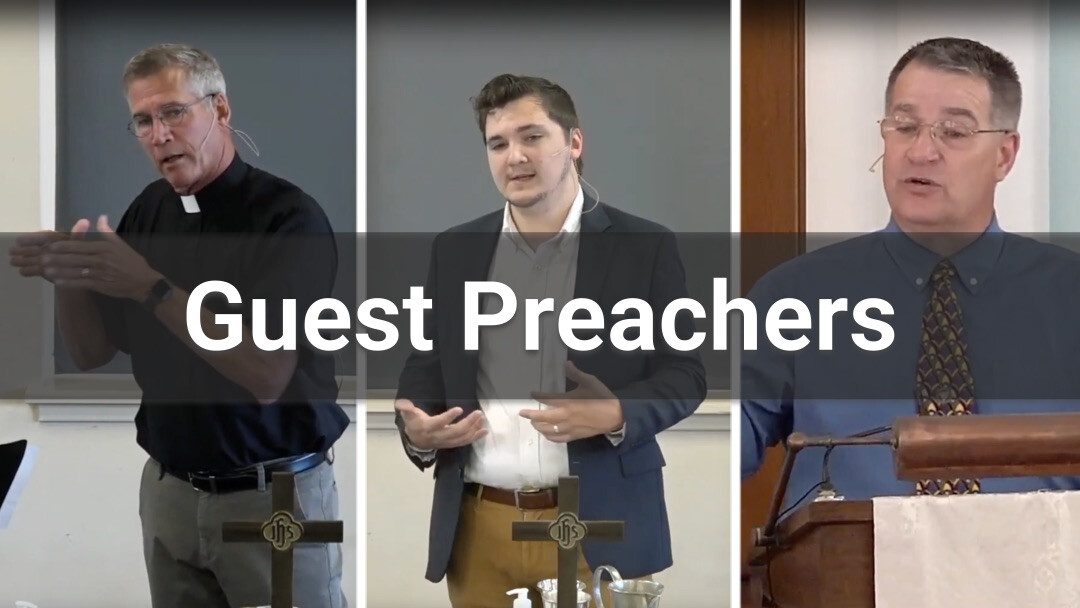
When Pastor Peter is away Second City Church is blessed to hear other men God has gifted to preach.

